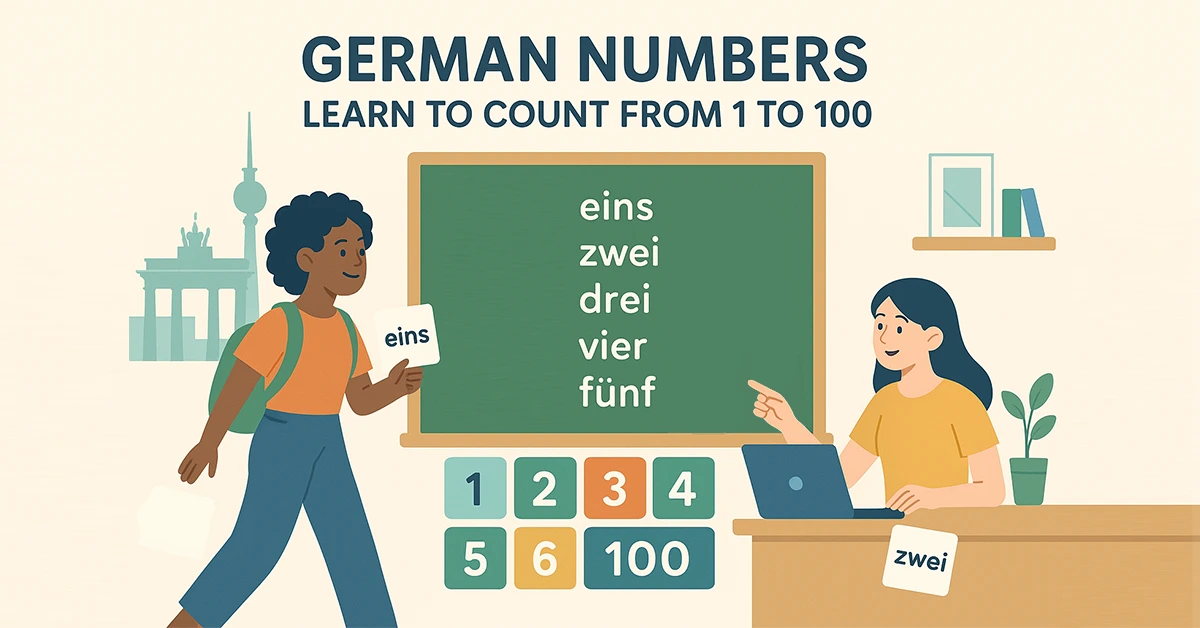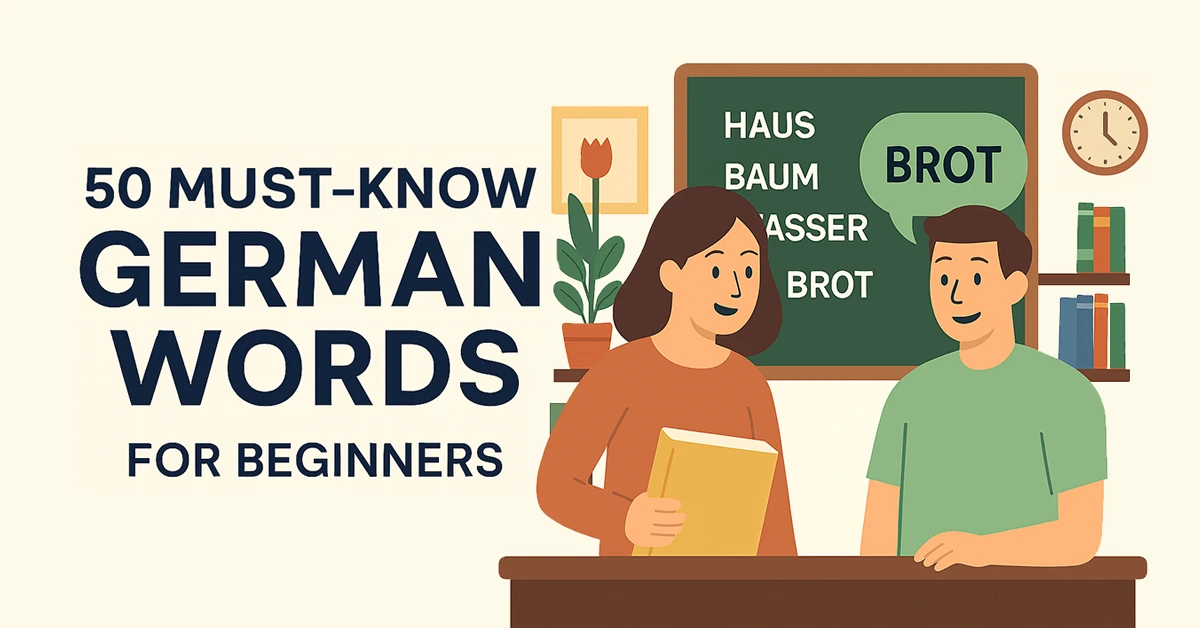German Vocabulary
Expand your German vocabulary with categorized word lists, real-life examples, and themed lessons. This category helps you master essential German words for daily life, work, travel, and exams – from A1 to B2 level.
-

German Numbers: Learn to Count from 1 to 100 Easily
Learn German numbers from 1 to 100 with pronunciation tips, examples, and sentences. Master German counting step-by-step in this complete beginner guide.
-

50 Must-Know German Words for Beginners
Learn the 50 most essential German words for beginners with meanings, pronunciation tips, and examples. Start speaking German today with this simple guide.